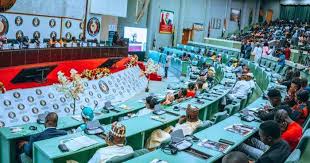The ECOWAS Parliament convened a delocalised meeting on August 26, 2024, in Banjul, The Gambia, which was officially opened by the Gambian Speaker of the National Assembly, Rt. Hon. Fabakary Tombong Jatta.
This meeting is to advance the implementation of the ECOWAS flagship Protocol on Free Movement and its accompanying Supplementary Acts aimed at facilitating the movement of persons, right of residence, and establishment of business by Community Citizens across the region.
Speaking at the opening of the 5-day session, The Gambia’s Minister of Trade, Industry, Regional Integration, and Employment, Baboucarr Joof, reaffirmed his country’s commitment to the principles of regional integration.
Joof urged the ECOWAS Parliamentarians to strengthen legislative support for the protocol and to collaborate closely with national governments to overcome any obstacles to its implementation.
The Speaker of the ECOWAS Parliament, Hon. Memounatou Ibrahima, also emphasised the vital role of parliamentarians in making the protocol a reality.
She called on policy-makers and stakeholders to work together to address the challenges and develop coordinated policies that maximize the benefits of free movement across the region.
“Policy-makers and all stakeholders must unify their efforts to identify challenges and propose solutions that will maximise the benefits of free movement, both at the regional and national levels. These objectives will only be achieved through the development of coordinated policies and actions,” she stated.
During the session, a presentation on the overview of the Free Movement Protocol and its Supplementary Acts was made. The ECOWAS Director of Free Movement of Persons and Migration, Mr. Albert Siaw-Boateng speaking on behalf of the ECOWAS Commissioner for Economic Affairs and Agriculture, Mrs. Massandjé Toure-Litse, highlighted various factors that have impeded the implementation of the Protocol of Free Movement of persons in the region.
He stressed the need for enhanced synergy by all relevant ECOWAS Institutions especially the ECOWAS Parliament and stakeholders in order to advance the implementation of the said Protocol in Member States, which is pivotal for deeper regional integration and economic cooperation within the ECOWAS Space.
He also mentioned the need for Member States to fully deploy the ECOWAS National Biometric Identity Card (ENBIC) and implement the abolishing of the 90-day stay as adopted by the Authority of Heads of State and Government as well as the domestication of all instruments related to Free Movement by Member States.
The ECOWAS delegation in Banjul will also engage in Townhall meetings and interactions with the Market Traders, Transport Union, Women and Youth in this regard. In addition, there would be a visit to the Amdallai, The Gambia – Karang, Senegal border.
The meeting is set to conclude on 30 August with the issuance of a communiqué outlining the key recommendations and decisions. The document will be submitted to the ECOWAS Commission and Parliament for further consideration and action.
GIK/APA


